- Home
- Rick Mofina
Before Sunrise
Before Sunrise Read online
BEFORE SUNRISE
Copyright © 2016 Rick Mofina
ISBN 978-1-77242-053-1
e-Formatting by Carrick Publishing
Cover design by James T. Egan, bookflydesign
Smashwords Licence Notes:
This e-book is intended for your personal enjoyment only. This e-book may not be sold or given away to other people. If you’re reading this e-book and did not purchase it, please return to Smashwords and purchase your own copy.
Thank you for respecting the hard work of this author.
Table of Contents
Dedication
Begin Reading
Part One
Part Two
A Note to the Reader
About the Author
Also by Rick Mofina
Contact the Author
This is a work of fiction. Names, characters, places and incidents either are the creation of the author’s imagination or are used fictitiously, and any resemblance to actual persons living or dead, business establishments, events or locales is entirely coincidental.
Before Sunrise is based on an earlier Rick Mofina short story, “The Last Pursuit,” and includes scenes and characters from that work.
Dedication
For those who have given so much to so many.
All our fears are darkest before sunrise.
—Old Proverb
Chapter 1
Southern Alberta
“Lone Tree Six to Control, you’re breaking up. Could you repeat?”
The radio issued static-filled crackling, then a transmission.
“Control to Lone Tree Six, got a ten thirty-six domestic. Caller is Trudy Dolan at Big Diamond Farm. Site Sixteen Forty-Nine. She’s scared, whispering into the phone and hard to hear. I’ll get more info. Copy?”
“Ten-four. On the way.”
“Sending you the history, Six.”
“Ten-four.”
“What’s your ETA?”
“Twenty-five, maybe twenty minutes.”
Constable Will Fortin of the Royal Canadian Mounted Police Lone Tree Detachment hit his lights and siren, pushing his Crown Victoria for Crystal Butte. Rain gusted in sheets, slanting down, streaking white before his headlights. His wipers ticked against the night like a heartbeat as the complaint history for the Dolans came up on his monitor.
The records showed two previous calls in the last eleven months.
Fortin didn’t have to read them. He’d taken both of them.
In the first, Lyle Dolan had been drunk and shouting threats before passing out. Trudy had cancelled the call. Still, Fortin had responded and had checked on her welfare. No problem, Trudy had said in the darkness from behind the door. It took some doing, but Fortin persuaded her to let him in. There she was with a cut above her left eye.
“What happened?” he had asked her.
“I scratched myself with my hairbrush,” she’d told him.
“Is that what really happened?”
“Yes, I swear.”
The kids, Billy, the biggest, was six; his little sisters, Daisy, five, and Lori, three, were on the living room floor, caught in the dim glow of the TV. The sound was low as Wile E. Coyote chased the Road Runner in vain, but Fortin heard the lyrics almost underscoring what was happening, the “beep-beep” and something about never learning.
Fortin could only imagine what these children had seen and heard from Lyle. He’d asked them if everything was okay, prompting three little heads to give him big nods.
But he could smell the truth.
Lyle was snoring on the sofa. Reeking, empty beer bottles stood like broken promises on the coffee table.
In the kitchen Trudy sat at the table, gripping a steaming teacup with both hands, as if to keep them from shaking.
After he’d stopped asking about her cut, he asked about their situation and she began nodding. “We’re going to be okay. We’re not going anywhere. We’ll talk to the bank. We’ll work it out. We’ll be fine.”
Fortin knew these were the lies she had to tell herself, and it broke his heart because she’d refused offers of help, offers to talk to social services, to talk to a counsellor.
That was the first call.
Fortin looked at the time and his location. Now he was a little more than fifteen minutes away.
He checked his shoulder mic and reviewed the second complaint from five months ago. He remembered it well. Trudy had called. Lyle had been drinking again. He’d been suicidal. She’d taken his keys, especially those for Lyle’s guns. She’d collected the kids and had gone to their neighbors, the Starners. That was smart. In responding, Fortin’s plan had been to see to Trudy, and then he’d visit Lyle.
At the Starner place, he’d pulled up behind Trudy’s Toyota.
Wayne Starner, a retired farmer, had come to the door. His wife was in the kitchen comforting Trudy, whose collar-length red hair was messed. She was wearing a man’s plaid coat over her shoulders, a flannel nightgown, jeans and woolen socks. Blood stained the roses on the dish towel she was holding to her face.
Fortin wanted a closer look.
Trudy removed the towel. Her lip was split, her left eye was discolored.
“What happened?”
“He was drinking. I’ll be all right when he sobers up, but he’s talking about shooting himself. I’m so scared. I think he means it. The bills have been piling up. Collection agencies keep sending people to our house. He can’t go a day without drinking. Seems like we’ve always been struggling. The ranch has been in his family for three generations.”
“I’ll call an ambulance,” Fortin said.
“Don’t,” Trudy said. “I’ll be all right.”
The kitchen door kicked open, splinters sailed to the sink and across the hardwood floor.
“What the hell?” Starner said.
Lyle Dolan filled the doorway in filthy, unlaced work boots, jeans, a grease-stained T-shirt, and a frayed John Deere cap. His red-rimmed eyes bulged and his whiskered face contorted as he swung a baseball bat next to his leg, and then leveled the tip at Trudy.
“You get my kids and you get in the truck! You’re coming home now!”
Fortin’s pulse quickened. His gut tightened as he stood slowly, showing Lyle his open palms, positioning himself at the end of the bat to shield Trudy and the Starners.
“Take it easy, Lyle.”
He looked at Fortin, who was also in his thirties, about his height and size. Lyle inventoried his navy pants with a wide yellow seam stripe, his khaki shirt, and the blue armored vest, before stopping at the Smith & Wesson semi-automatic holstered in Fortin’s leather utility belt.
“I got no beef with you, Will. Get out of my way. This is between man and wife.”
“Lyle, I’d like you to put the bat down. Let’s talk about this.”
Lyle’s breathing quickened, making his face expand and contract. He was clinging by a thread to all that he’d had and all that he was. He ran the back of his hand across his mouth.
“She tries to hide my whiskey. She thought she got all my keys. Not my spares. She tries to control everything! Don’t you, Trudy?”
“Lyle, look at me,” Fortin said. “Look at me and put the bat down.”
“A man’s got to have some control. Right, Will?”
“That’s right. So get control of yourself and put the bat down.”
Fortin inched toward Lyle, studying every movement. Drinking should slow his reaction time. Fortin was now four feet from him.
“I said come on, Trudy. We’re going home. Don’t make me beg. Because a man shouldn’t have to beg.”
Fortin continued moving closer. He could smell the alcohol on Lyle’s breath. He could feel the heat of his desperation, see his knuckles whiten on the ba
t.
“Get out of my goddamned face, Will! Because one way or another, I’m taking my wife and kids home with me!”
“Lyle, put the bat down.”
“Daddeeee!”
Lyle’s daughter, Daisy, had emerged from across the room hugging a stuffed teddy bear, distracting him. Fortin grabbed at the bat, but Lyle moved fast, drawing it back and swinging it at him. Fortin deflected the blow, attacking Lyle’s grip and sending the bat flying full-force into the Starners’ ceiling.
The women screamed. Daisy screamed loudest, a heart-wrenching child’s scream of sheer terror.
Plaster showered on them as the bat thudded to the floor. Fortin’s momentum drove him into Lyle, tackling him through the doorway, into the darkness, off the landing, and onto the ground where he rolled him to his stomach and handcuffed him.
Trudy pulled Daisy to her, both of them sobbing. Starner comforted his wife. Fortin locked the bat in his trunk along with a rifle he’d found in Lyle’s pick-up. Lyle sat statue-still in the back of the patrol car. After Fortin was satisfied no one was hurt badly, he stared up at the night sky, letting his heart rate return to normal as constellations wheeled by.
That’s how it was out here.
Chapter 2
Southern Alberta
Lone Tree stood at the edge of the immense prairie where the Rocky Mountains rise from the earth, a windswept town in a near-empty corner of southern Alberta, across the border from Montana.
You could go a long way before seeing another soul, for this is where the sky met the land on even terms, where the landscape exaggerated, or diminished, your place in the world. If you were lucky, trouble would never find you here. If you weren’t, this was your battleground, Fortin thought, as he guided his patrol car deeper into the rain and the darkness where Trudy Dolan had again called for help.
Hang on, Trudy. I’m getting closer, almost there.
Tonight he was the only cop on duty to cover an area nearly the size of Delaware. The handful of Royal Canadian Mounted Police officers posted to Lone Tree worked rotation shifts. Fortin was three hours into his seventh straight all-nighter and it seemed like he was the only living thing in this part of the world, until red eyes blazed in his rain-streaked headlights. He dropped his speed to let three mule deer prance across the road in front of him. Then a small one, a straggler, appeared in his path and froze. Fortin stopped. His high beams locked onto its eyes. They were wide with fear, as if telegraphing a warning.
A sense of foreboding shivered through him. He tapped his horn. The deer flinched then fled.
Fortin drove on, accelerating.
To the west, his jurisdiction bordered the Big Diamond Creek First Nation. To the south was Montana. In the East, his zone encompassed a sprinkling of villages, settled by American and European immigrants in the early 1900s, a God-fearing region of ranches and farms that produced barley, canola, and wheat. Not much crime. You got traffic deaths, drunken drivers and bar fights, and a few domestics.
He’d requested this posting as a career move but that wasn’t the only reason. There was something unspoken about the beauty of the land that had drawn him here. Maybe it was the majesty of the snowcapped Rockies but something comforting, even something spiritual, made him believe that he was meant to be here.
Maybe it’s got something to do with that girl Elena, when I was a kid?
Fortin was born in Quebec where he’d been raised fluent in French and, thanks to his mother, English, too. His French-born father was a detective with the Sûreté du Québec, the provincial police, and he’d followed a case to Toronto where he’d become smitten with the office manager for the Toronto police homicide unit.
They fell in love, got married, and settled in Quebec City, where Fortin was born. They lived in the Montcalm District. Fortin loved how its narrow streets were lined with tall oak and maple trees. Their home was not far from an old convent and the area had an abundance of churches. Much of the neighborhood was jammed with neat, working-class apartments. They had pretty balconies and flower boxes that cascaded with the most glorious colors. It was where people hung laundry out to dry, and where seniors enthroned in rocking chairs would lecture loudly to kids on how to behave on the street.
Fortin and his friends spent much of their time playing hockey. In winter their games were held on schoolyard rinks. In the summer, they played on the road, lifting their nets whenever a car approached.
When they weren’t playing hockey, they’d go to the Plains of Abraham to watch the great ships glide by on the St. Lawrence, wondering where they were headed and guessing at what the cargo could be. He also loved stealing carrots from the kitchen, then running to the city gate and feeding them to the horses that pulled the tourists on carriage rides through the old, walled city.
But among all of Fortin’s boyhood memories, one always stood out.
The girl Elena, Elena Grabowski.
She was very pretty in a dark, mysterious way. He’d never forgotten the time when Elena and her family had first moved into Montcalm from Europe. She was a little older than Fortin and his friends. Sometimes she watched them play street hockey and would talk to them when they took a break. She had dark eyes, spoke several languages, and claimed to be a gypsy.
“You know, I have special powers,” Elena had told them.
“Like what?” Fortin asked.
“I can tell your fortune.”
“No way.”
“I can. And I’ll tell you yours, for five dollars.”
“Five dollars? That’s a lot of money.”
“No, it’s not, not if you want to know what your future will be.”
Fortin was uncertain about the deal.
“Just come to my house tonight after supper,” Elena said. “My parents will be away and I’ll be watching my little brothers.”
Fortin was hesitant but his friends, Andre and Paul, egged him to go.
“Do it, Will!” Andre said. “You’ve got five bucks!”
“I bet she just wants to kiss you!” Paul said.
“No kissing. I will tell his fortune and yours, too, for five dollars each.”
Paul and Andre said nothing.
“Unless you’re afraid?” Elena added.
“No way, we’re not afraid,” Paul said.
“A girl who makes up stories doesn’t scare me,” Andre said.
“All right then, so all of you come to my place at seven o’clock,” Elena pointed her finger at them. “And don’t forget to bring your money.”
It was summer and there was plenty of daylight left after supper, which meant Fortin and his friends could stay out until eight p.m. Elena’s family had a small basement apartment that smelled of onions and spices and was crammed with exotic things. A huge, battered steamer trunk with a padlock stood in a far corner, ancient photos in ornate oval frames of unsmiling, creepy ancestors stared from one wall, and a bowling-ball sized crystal sphere mounted on a wooden base sat on the mantel.
Elena’s little brothers talked in some strange language as they played with toy trucks and miniature soldiers in their bedroom while she and her guests sat at the kitchen table. She lit a red candle that was wedged into a wax-webbed blue bottle at the center. Then she switched off the lights and pulled the curtains, casting the room in a soft, dim glow. Andre, Paul, and Fortin had come up with their five dollars, retrieved from hidden boxes or stashed pickle jars that held money saved from doing chores, from birthday gifts from grandparents, from allowances.
They each put their cash on the table.
“What’s in that big trunk?” Fortin asked.
“That?” Elena glanced at it. “Family secrets.”
“Like what?”
“If I told you,” Elena smiled, “they wouldn’t be secrets.”
“Come on, no really, what’s in there?”
“Old things that belonged to our relatives in Europe.”
In the near-dark, Fortin felt the eyes of Elena’s ancestors watching from their places
on the wall.
“Now,” Elena looked at Andre, “you first.” She took his hands in hers, studying his palms closely by the light of the candle for several moments. “No problems here. You’ll live a long, happy life.”
“Really? That’s it? For five bucks I think you should tell me more.”
“That’s it. You should be glad there’s nothing bad for you.”
“How about you give me some money back?”
“How about you shut up before I put a curse on you?”
Andre fell silent, and Elena turned to Paul.
“Now you,” she took Paul’s hands and did the same. She concentrated hard as a few minutes passed. “I’m sorry because for you; it’s good and bad.”
“Good and bad? What’s that mean?”
“You’re going to be wealthy.”
“Great! I want new skates and a new stick!”
“But you’re not going to live as long as Andre.”
“Hey, that’s not right, that can’t be true.”
“Can I have your money when you die?” Andre laughed.
“You’ll live a full life, Paul,” Elena said. “Just not as long as Andre.”
“Well, we’ll see about that,” Paul glared at Andre.
“Okay, your turn,” Elena reached for Fortin’s hands.
“Wait,” he said. “Is this fortune-telling stuff for real?”
“It’s as real as the sun, the moon, and the stars.”
“Come on, it can’t be,” he said. “Where’d you learn it?”
“From my great-grandmother. She taught me how to read the lines in people’s hands just before she died in Bucharest.”
“Where’s that?”
“In Romania. We lived there for a few years on a small farm in the mountain country. Then we moved to Hungary and then Poland. Look, quit stalling. It won’t hurt. Give me your hands because you’re not getting your money back.”

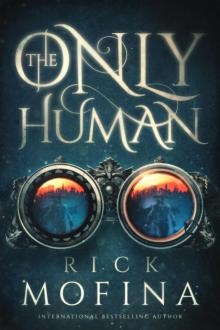 The Only Human
The Only Human Tom Reed Thriller Series
Tom Reed Thriller Series![[Tom Reed and Walt Sydowski 04.0] No Way Back Read online](http://i1.bookreadfree.com/05/tom_reed_and_walt_sydowski_04_0_no_way_back_preview.jpg) [Tom Reed and Walt Sydowski 04.0] No Way Back
[Tom Reed and Walt Sydowski 04.0] No Way Back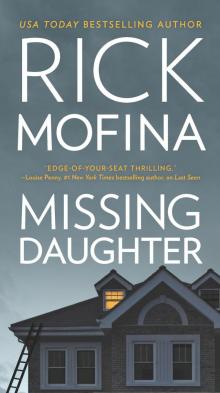 Missing Daughter
Missing Daughter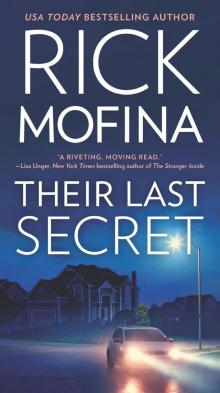 Their Last Secret
Their Last Secret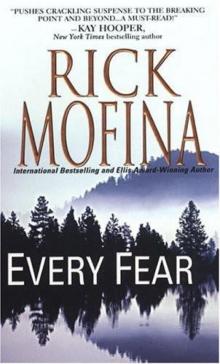 Jason Wade - 02 - Every Fear
Jason Wade - 02 - Every Fear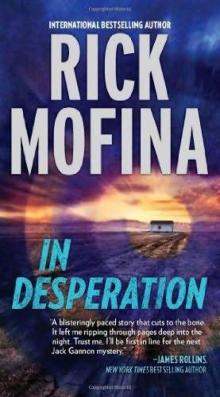 In Desperation
In Desperation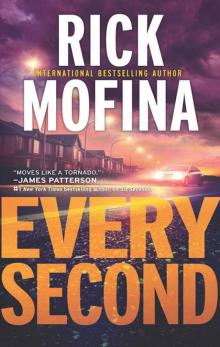 Every Second
Every Second Full Tilt
Full Tilt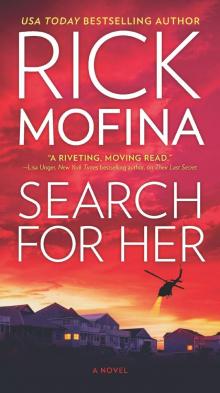 Search for Her
Search for Her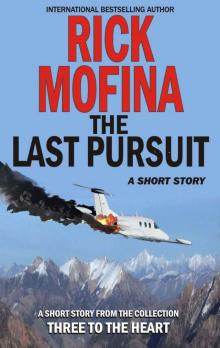 The Last Pursuit
The Last Pursuit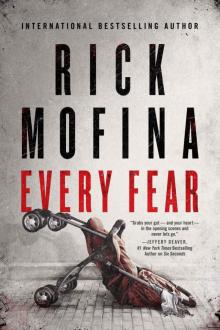 Every Fear
Every Fear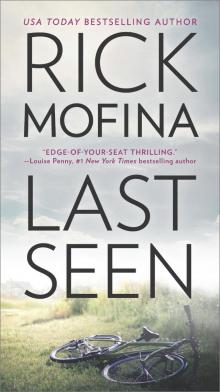 Last Seen
Last Seen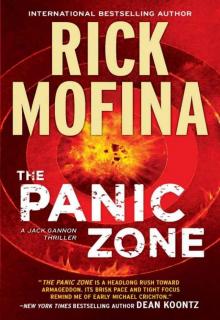 The Panic Zone
The Panic Zone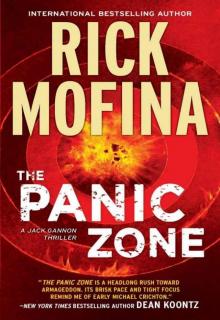 The Panic Zone jg-2
The Panic Zone jg-2 Free Fall
Free Fall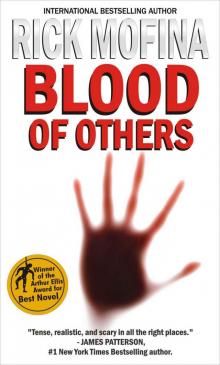 Blood of Others
Blood of Others![[Jason Wade 02.0] Every Fear Read online](http://i1.bookreadfree.com/i1/03/31/jason_wade_02_0_every_fear_preview.jpg) [Jason Wade 02.0] Every Fear
[Jason Wade 02.0] Every Fear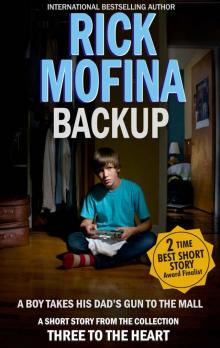 Backup
Backup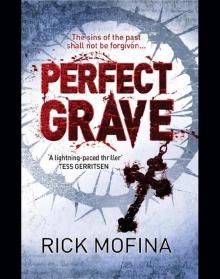 Perfect Grave
Perfect Grave Into the Dark
Into the Dark Whirlwind
Whirlwind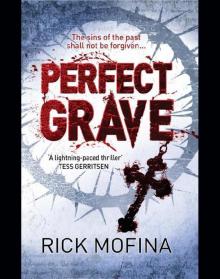 Perfect Grave jw-3
Perfect Grave jw-3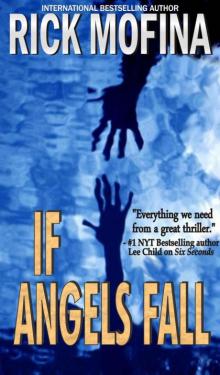 If Angels Fall (tom reed and walt sydowski)
If Angels Fall (tom reed and walt sydowski)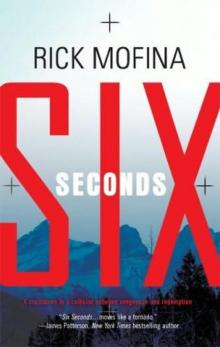 Six Seconds
Six Seconds If Angels Fall
If Angels Fall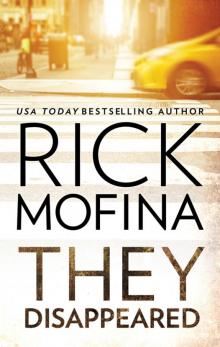 They Disappeared
They Disappeared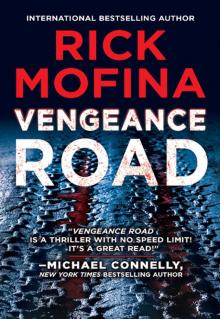 Vengeance Road
Vengeance Road Before Sunrise
Before Sunrise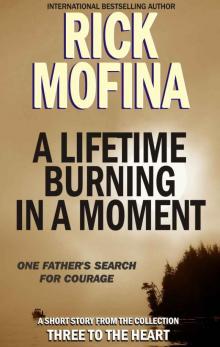 A Lifetime Burning in a Moment
A Lifetime Burning in a Moment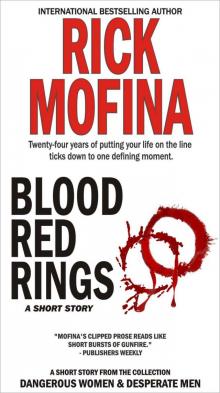 Blood Red Rings (Dangerous Women & Desperate Men)
Blood Red Rings (Dangerous Women & Desperate Men)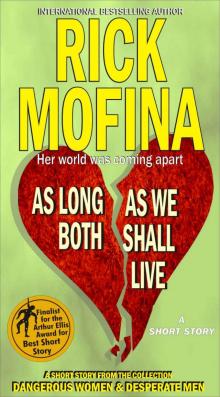 As Long As We Both Shall Live (Dangerous Women & Desperate Men)
As Long As We Both Shall Live (Dangerous Women & Desperate Men)![[Tom Reed and Walt Sydowski 01.0] If Angels Fall Read online](http://i1.bookreadfree.com/i2/04/12/tom_reed_and_walt_sydowski_01_0_if_angels_fall_preview.jpg) [Tom Reed and Walt Sydowski 01.0] If Angels Fall
[Tom Reed and Walt Sydowski 01.0] If Angels Fall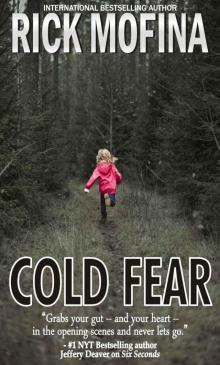 Cold Fear
Cold Fear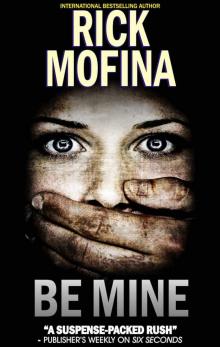 Be Mine
Be Mine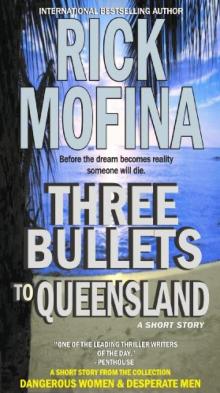 Three Bullets To Queensland
Three Bullets To Queensland